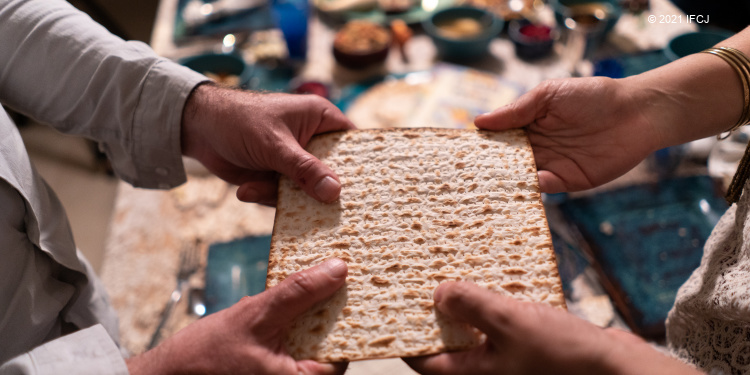Passover, the Holiday of Freedom
The Fellowship | April 15, 2024

The Jewish holiday of Passover, which we observe this year beginning at sundown April 22, celebrates the Exodus of the ancient Israelites from slavery in Egypt.
How many years the Israelites lived as slaves depends on how you interpret various biblical passages. Yet, in my opinion, the number of years of slavery is not what is important. What matters is that we were once slaves and now we are not. God took the Jewish people out of Egypt, and we became a free people. The Jewish people received the Torah, became a nation, and after 40 long years of wandering in the Sinai desert finally reached the Promised Land.
The highlight of the Passover holiday is the Passover seder, the festive holiday meal during which we retell the story of the Exodus. We read from the Haggadah, a special book that tells the story of the Exodus from Egypt and includes blessings, prayers, and songs. The Haggadah tells us that in every generation we should see ourselves as if we personally escaped from Egypt. We focus on teaching the story to children so that they will understand and identify with our history and traditions and pass on the story to the next generation. With songs and stories, and often games and drama as well, children learn the meaning of this holiday that is so central to our identity as Jews.
Passover in a Time of War
What is freedom? It can be defined as the state of being free from servitude or constraint, or at liberty rather than in confinement. As Passover gets closer, I think about what it really means for us as Jews. I wonder what exactly the hostages in Gaza are experiencing and feeling after six long months in captivity, and how we can celebrate Passover in the shadow of the present reality. Because, for the hostages, there is no freedom. I wonder if being a hostage in Gaza in 2024 is worse than what the Israelites experienced in Egypt so long ago.
Sometimes I feel like we are living in biblical times, and one day a theological book will be written about the present events and studied by scholars a thousand years from now. How will the book tell the story of the Swords of Iron War? Will the story end with victory? Will a prophet or new leader appear to guide us along the way? What lessons will we learn? Most of all, what will happen next?
We are living in the middle of it now. The war is not over. Soldiers are still being killed in battle, and more than 100 hostages remain in Gaza. We don’t know what will happen tomorrow, or next week, or next month.
A Song – and a Prayer
Passover is the holiday of freedom. One of the classic songs sung during the seder says, “We were slaves to Pharoah in Egypt, and now we are free people.” This year, I wonder how we can sing this song knowing we have brothers and sisters still being held captive in Gaza.
And yet, despite everything, I know I will sing it – not only as a statement, but as a prayer that tells the story of our past and celebrates the idea of freedom. May this prayer give us strength to find a way to bring freedom to the hostages in the present, and freedom and lasting security for all of us in the future.
Miriam Lock
April 2024
